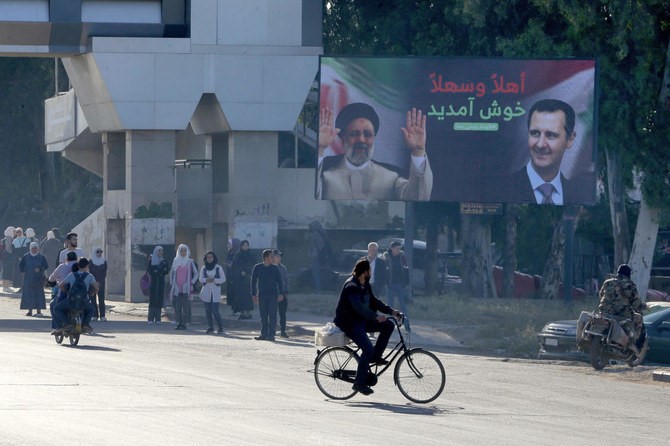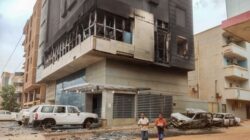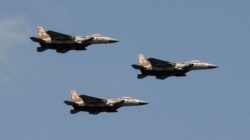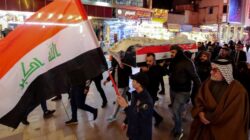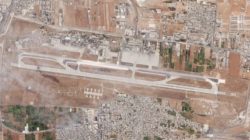DAMASCUS – Iranian President Ebrahim Raisi arrived in Damascus on Wednesday, marking the first visit by an Iranian head of state to the war-torn country in more than a decade.
Since an uprising turned into a full-fledged war in March 2011, Tehran has been a key supporter of President Bashar Assad’s government, helping to turn the tide in his favor.
Iran has supplied dozens of military instructors as well as thousands of Iran-backed fighters from across the Middle East to fight with Assad. In recent years, Syrian government forces have controlled major areas of the nation with the assistance of Russia and Iran.
Raisi is set to see Assad during his two-day visit and sign various agreements and memorandums of understanding to deepen cooperation, according to Syrian state and pro-government media. Raisi advocated for restoration efforts and the return of refugees fleeing the country’s turmoil in an interview with pan-Arab television channel Al-Mayadeen.
Raisi, who is leading a high-level political and economic delegation, was greeted by Syrian Economy Minister Samer Al-Khalil upon arrival at Damascus International Airport.
He also plans to visit the Shiite shrines of Sayida Zeinab and Sayida Ruqayya, as well as the Tomb of the Unknown Soldier, a memorial to Syrian troops fallen in war.
President Mahmoud Ahmadinejad was the last Iranian president to visit Syria in 2010.
The Iranian president’s visit coincides with other Arab countries, notably regional powerhouses Egypt and Saudi Arabia, warming up to Assad and sending foreign ministers to Damascus in recent weeks. Syria’s foreign minister also paid a visit to the Saudi capital of Riyadh in April, the first since the two countries severed ties in 2012.
After seven years of hostility, Iran and Saudi Arabia, a major supporter of Syrian opposition militants, signed an agreement in China in March to re-establish diplomatic relations and restore embassies.
The reconciliation between Iran and Saudi Arabia is expected to benefit regional states where the two countries have waged proxy wars, such as Syria.
Syria was generally avoided by Arab states as a result of Assad’s ruthless assault on demonstrators, and the deterioration in relations culminated in Syria’s expulsion from the Arab League in 2011. Since then, the fighting has killed almost 500,000 people and displaced half of Syria’s pre-war population of 23 million.
Source: Arab News


